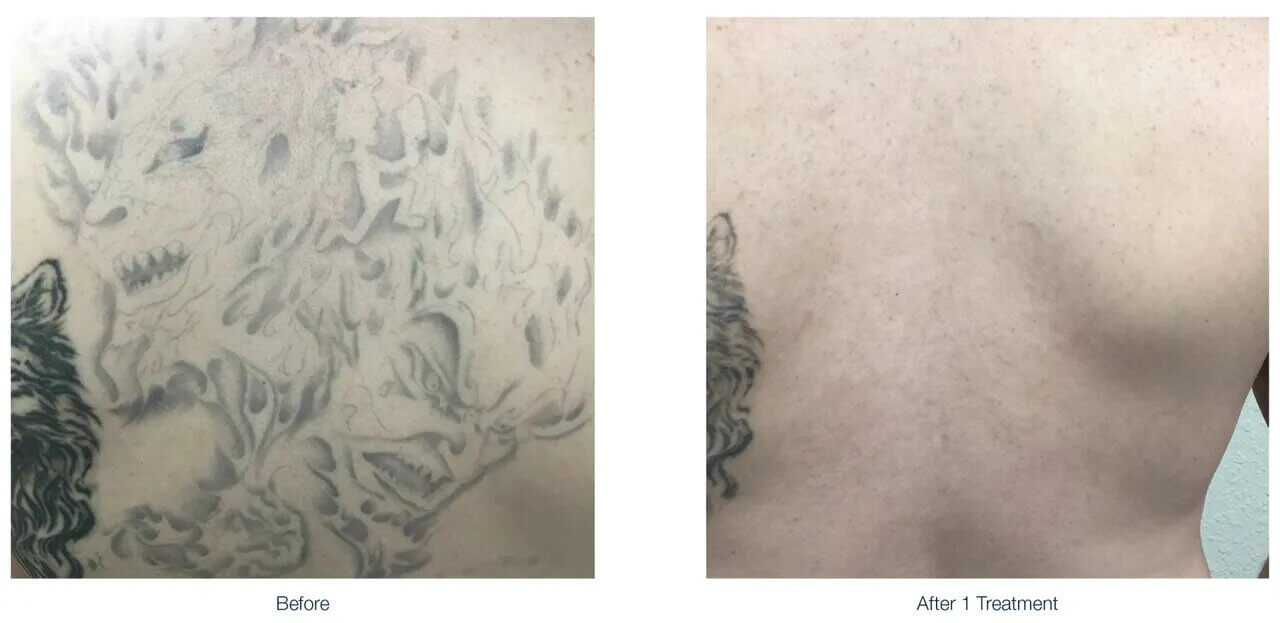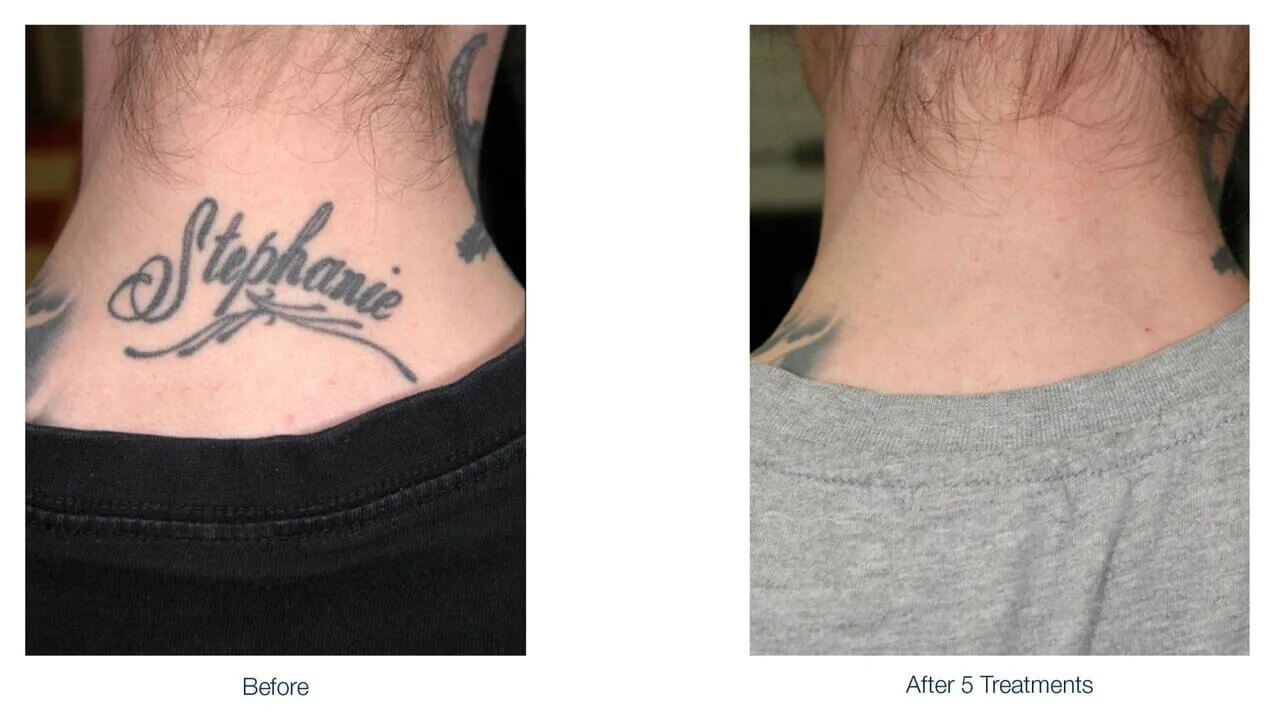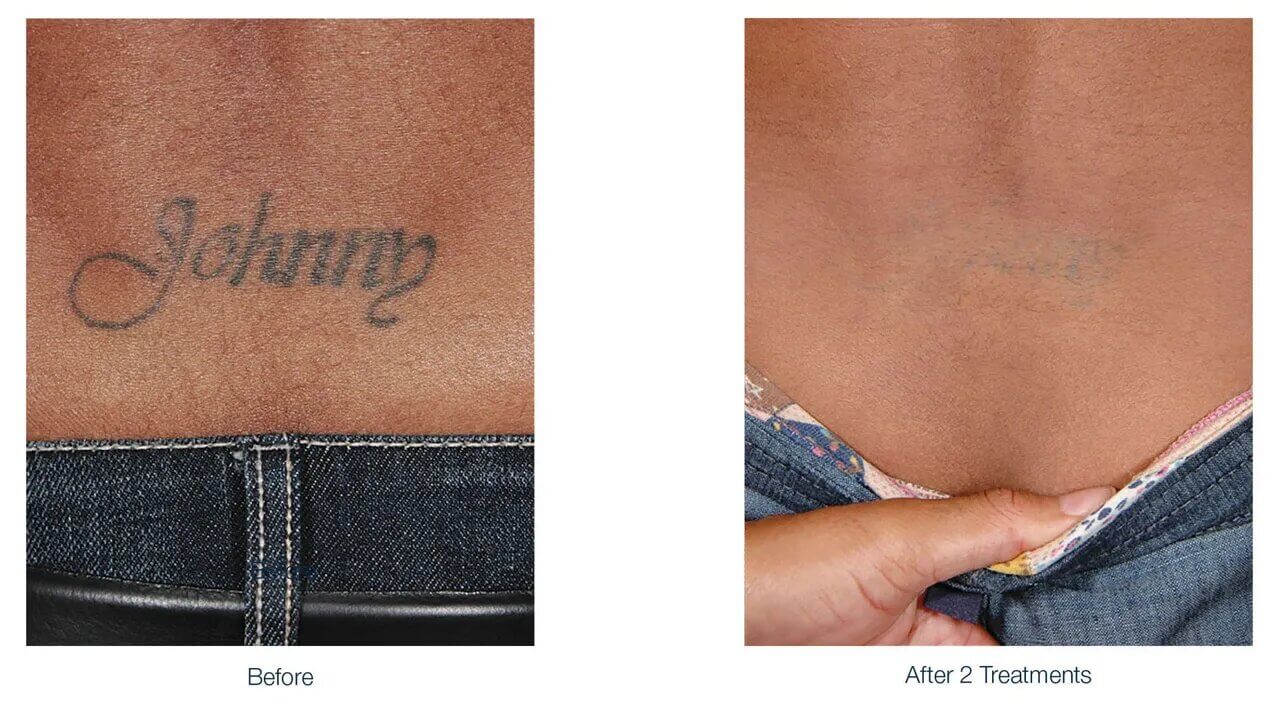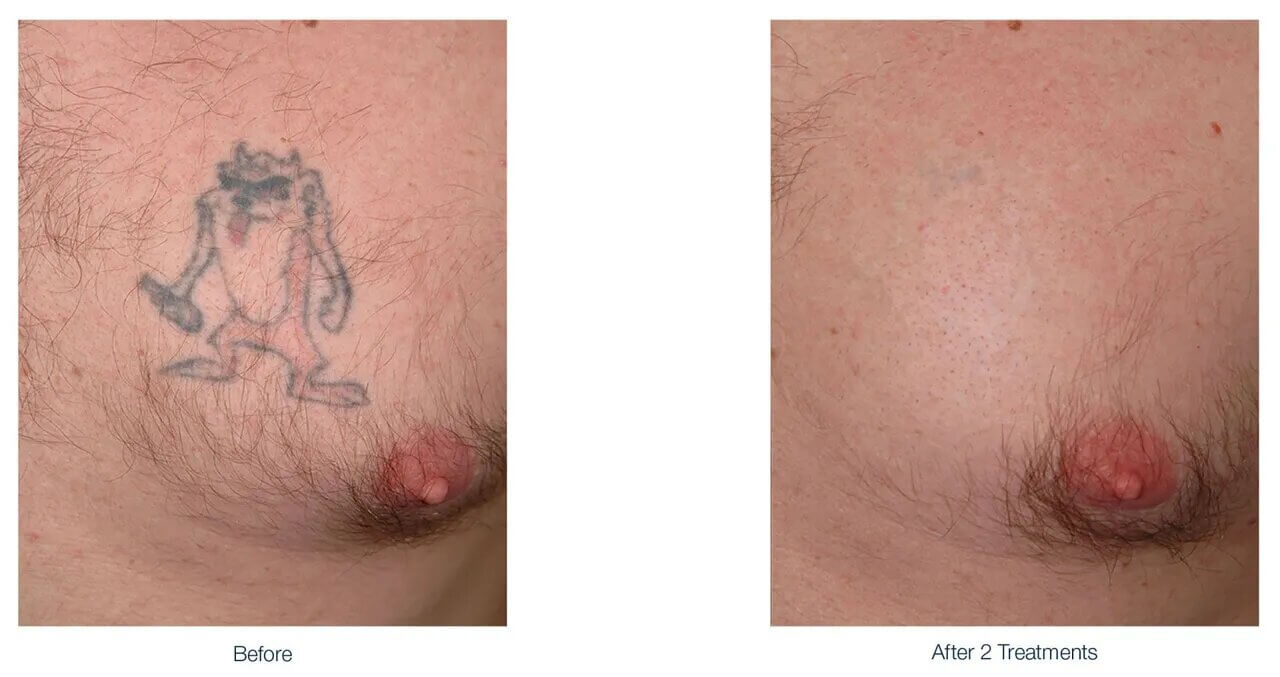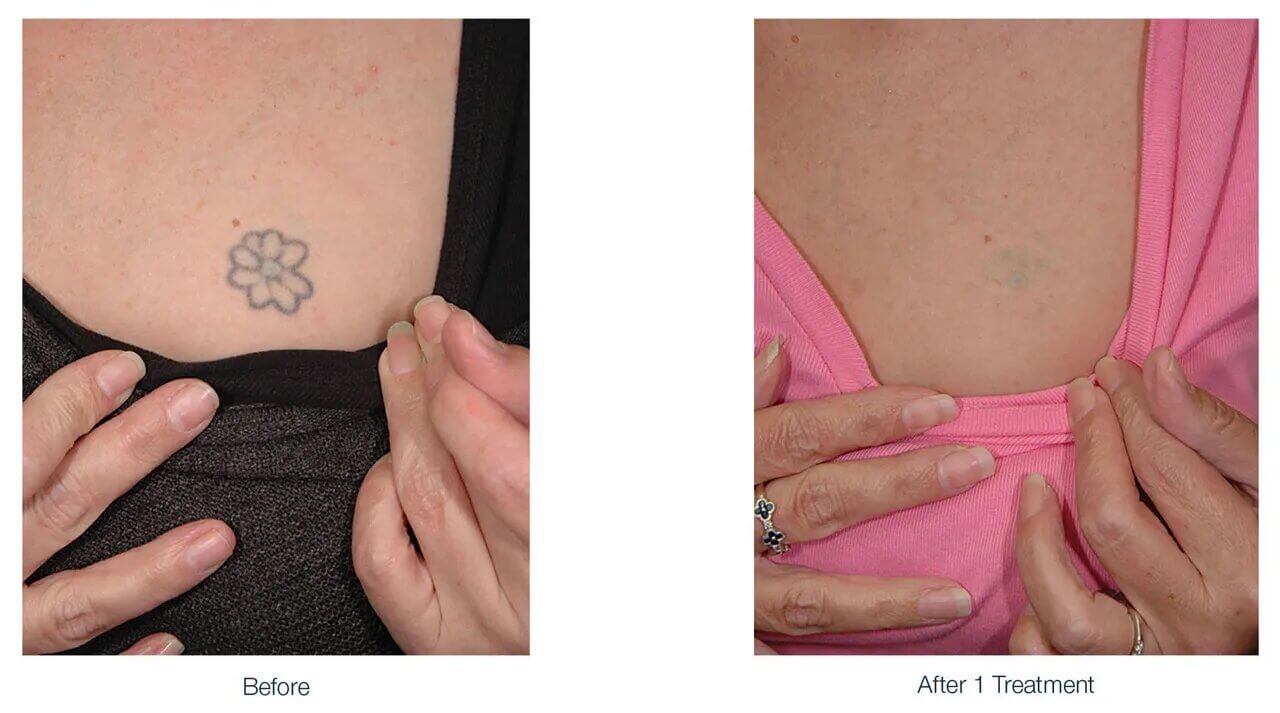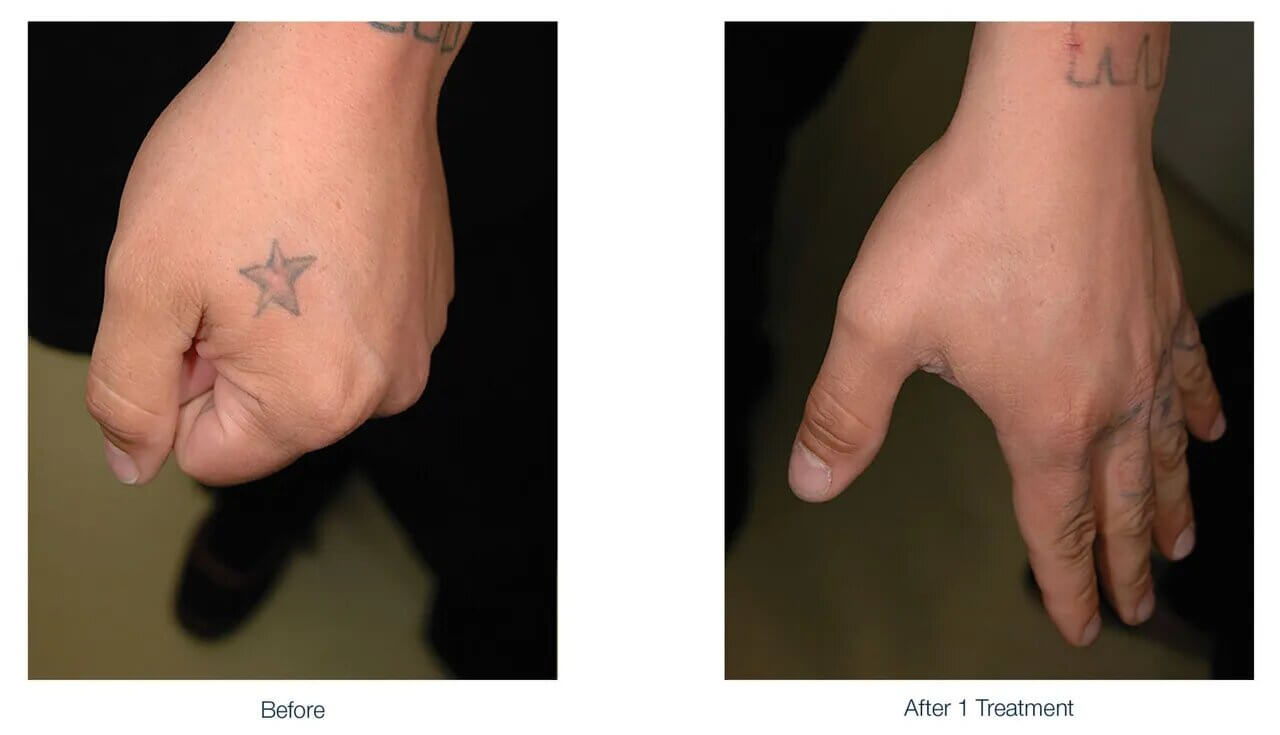


The number of treatments needed depend on the tattoo itself, the area of the body and the background skin color. For the most accurate estimate of sessions, consult your practitioner for each tattoo.
Location matters: The closer the tattoo is to the heart the better circulation, therefore better results. More colorful tattoos and greater surface area usually require more treatments. Amateur tattoos are typically not as deep as professional ones, and are easier to remove.
A treatment series can range from 2 sessions, up to 10 sessions, and are conducted 6-8 weeks apart.
Immediately after treatment, you will see a whitish “frosting” over the tattoo. The skin will often swell in the area of the tattoo, accompanied by mild redness.
The frosting, swelling and redness will resolve in a matter of hours.
The tattoo may crust or blister as the body repairs itself. This will resolve naturally. The tattoo will fade gradually in the following weeks as your body clears the ink.
Dr. Parbhu will provide guidelines for before and aftercare, as well as the approximate time of the laser removal session.
During your session, you will hear the laser fire as loud, audible popping sounds, then feel heat over the general area of the skin. The treated area will feel as if it were sunburned.
PiQo4 laser tattoo removal treatments are not suitable for everyone and carry some risks. People known to form skin keloids may be more prone to scarring after any skin trauma, including laser administration to the skin.
People with dark skin may be at increased risk of hypopigmentation. Hypo and hyper-pigmentation are a common risk of treatment. Be sure to consult with your Dr. Parbhu before choosing this treatment.
PiQo4 laser technology effectively removes all common colors tattoos, either amateur or professional. This new technology targets both large and small tattoo particles simultaneously, breaking them into tiny particles that are naturally removed by your body. The laser only targets the ink, and will not harm the surrounding skin. Tattoo ink particles vary in size. Previous technologies would break down either small particles or large particles, but not the two together. The versatility of the PiQo4 allows for precise treatment of varying particle sizes and tattoo colors.
